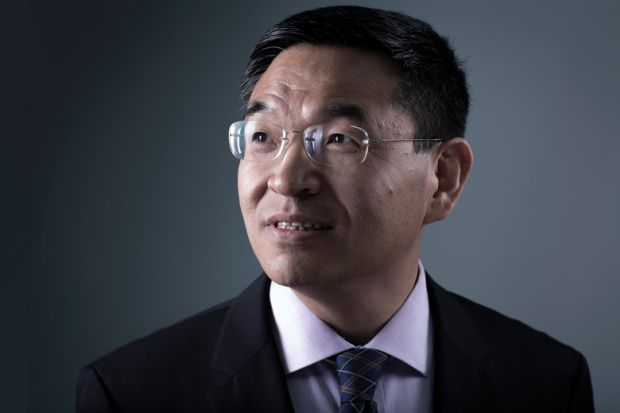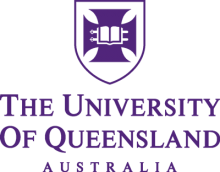“It was huge news in China – a big deal,” says Max Lu of his appointment as vice-chancellor of the University of Surrey, the first occasion that a China-born and educated scholar has led a Western university in modern times.
“A lot of people see me as an important example of a new generation of Chinese scholars – it’s very humbling,” adds Lu in his first interview since taking office at Surrey about six weeks ago.
Lu’s arrival also marks a landmark moment for UK academia: he is the first ethnic minority scientist to head a British university – perhaps surprising given the wealth of multinational talent based in the UK.
“It shows British society is very much more open and tolerant in its culture, recognising that diversity can enhance society,” says Lu, who grew up in China’s Shandong province before leaving to study engineering at Northeastern University in the US at the age of 16.
While Lu’s obliteration of the so-called “bamboo ceiling” in academia may be a historic first in many respects, some will be more interested in how he builds up links with schools, higher education institutions and industries in his homeland – a hugely important income source for the UK sector, where almost 90,000 Chinese students are based.
Lu’s track record in this area already looks fairly impressive. While provost and senior vice-president at the University of Queensland, where he completed his PhD and later returned as an academic in his field of chemical engineering and nanotechnology, he was instrumental in persuading Chinese steel giant Baosteel to invest $25 million (£17.6 million) in a new research and development centre, while US multinational Dow Chemical made a $10 million commitment among other deals brokered.
‘Opportunities to engage’
“I see a lot of opportunities to engage with businesses not just in China but the whole Asia-Pacific area – this is certainly part of my mission at Surrey,” he says.
“The university must, first and foremost, offer teaching and research excellence, producing graduates who make a difference, but should also become the preferred partner for business and industry in the UK,” he adds.
Lu says that he senses a far greater appetite for Chinese firms to invest in research internationally rather than simply concentrating on acquiring businesses or real estate – something that augurs well for UK university research.
“They are becoming more interested in investing in the long term,” he says.
“But you have to speak the language of industry and know what it needs – there is no point selling your university unless you are explaining how you can solve their problems."
He believes his own research background – he has run a research laboratory of 50 researchers, co-authored more than 500 peer-reviewed articles in leading publications and secured more than 20 international patents – will help him to achieve this.
“Many academics do not understand how to deal with companies if they’ve never done it,” he explains.
Under the leadership of Sir Chris Snowden, now vice-chancellor at the University of Southampton, Surrey has established many enviable industry partnerships – not least its links with telecoms giants Huawei, Vodafone and Samsung, among others, based at its £70 million research centre into 5G mobile technology. Lu is now tasked with taking these efforts to the next level.
Lu, whose research strategy helped to take Queensland into the top 100 of the Shanghai Ranking (it stood at 77 in 2014 compared with 130 in 2009), believes Surrey can make a similar leap.
With the university's student satisfaction scores among the highest in the country, and the institution in demand with students (its domestic intake grew by almost two-thirds between 2012 and 2015), Lu does not foresee much more growth over the next few years.
“We are constrained on further development by our physical infrastructure and surroundings,” he says, referencing the existing shortage of student housing in the medieval town of Guildford, where the university is based.
“We want to make sure students have at least the same facilities available now, if not better, so we can’t just grow by another 20 per cent [in a year],” he explains.
With Surrey about to celebrate the 50th anniversary of its charter, the focus now appears to be on improving the university’s research output and its industry links to elevate its international standing.
“If we do all things right, I think we will be in the top 100 within 10 years,” says Lu, of the institution now ranked in the 250-300 range in Times Higher Education’s latest World University Rankings.
“It’s not ranking position that I’m interested in but the substance of what’s behind it – if we get the right people, support our staff and engage properly, we will get there,” he adds.
POSTSCRIPT:
Print headline: Landmark v-c looks East to enhance industry links
Register to continue
Why register?
- Registration is free and only takes a moment
- Once registered, you can read 3 articles a month
- Sign up for our newsletter
Subscribe
Or subscribe for unlimited access to:
- Unlimited access to news, views, insights & reviews
- Digital editions
- Digital access to THE’s university and college rankings analysis
Already registered or a current subscriber?







